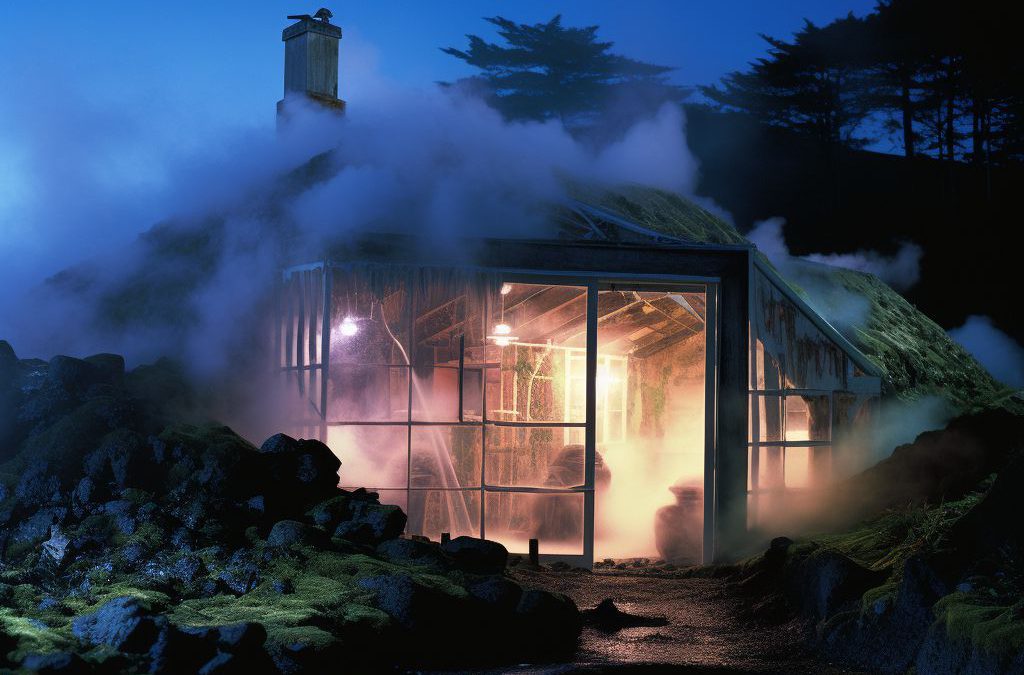If you have recently installed a geothermal heating and cooling system at your home, you might have been hoping for a drop in your electric bills. However, instead of experiencing a significant reduction, you might be noticing that your electric bill is unusually high. This unexpected increase in your energy bill can be a cause of concern, especially when you’ve invested in a geothermal system to save on electricity. In this article, we will discuss the reasons why your electric bill might still be high even after installing a geothermal system and some possible solutions to help reduce your overall energy consumption.
Tabe of Contents
- 1. Understanding Geothermal HVAC Systems: How They Work to Heat and Cool Your Home
- 2. The Benefits of Geothermal: Energy Efficiency and Sustainable Heating and Cooling
- 3. Common Reasons Why Your Electric Bill Might Be High with Geothermal and How to Address Them
- 4. Geothermal Maintenance Tips: How Regular Inspections and System Upgrades Can Save You Money
- 5. Geothermal Rebates and Tax Credits: How to Maximize Your Savings on Installation and Energy Costs
- People Also Ask
- Conclusion
1. Understanding Geothermal HVAC Systems: How They Work to Heat and Cool Your Home
Geothermal HVAC systems work by using the natural energy stored in the earth to cool and heat your home. This technology uses a loop system that is buried beneath the earth’s surface, which allows for water or refrigerant to absorb heat from the ground in the winter, and release heat into the ground during the summer. The loop system is connected to a heat pump which extracts the heat from the water or refrigerant and delivers it into your home.
These systems are much more energy-efficient than traditional heating and cooling systems because they don’t rely on burning fossil fuels to create heat. Instead, they use the natural heat that is already present in the earth, which makes them a much more sustainable option for homeowners. Additionally, geothermal systems are extremely long-lasting, with lifetimes up to 25 years longer than traditional heating and cooling systems.
Overall, geothermal HVAC systems are a smart investment for homeowners who are looking to lower their energy costs and reduce their carbon footprint. By leveraging the natural energy of the earth, these systems offer a reliable and efficient solution to home heating and cooling that can last for decades.
2. The Benefits of Geothermal: Energy Efficiency and Sustainable Heating and Cooling
Geothermal HVAC systems offer several benefits that are worth considering. These systems use the earth’s constant temperature of 55 degrees Fahrenheit to heat and cool your home, making them energy efficient and sustainable. Here are some of the benefits of geothermal HVAC systems:
Energy efficiency
Geothermal systems are more energy efficient compared to traditional HVAC systems. According to the Department of Energy, geothermal heating and cooling can provide energy savings of up to 70% compared to other systems. This is because geothermal systems do not rely on fossil fuels to heat or cool your home, which reduces greenhouse gas emissions and pollution. Additionally, geothermal systems are designed to last longer than traditional HVAC systems, with an average lifespan of 25 years for the indoor components and 50 years for the ground loop.
Sustainable heating and cooling
Geothermal HVAC systems are an environmentally friendly way to heat and cool your home. These systems use the constant temperature of the earth to regulate the temperature of your home instead of relying on fossil fuels. Geothermal systems do not require a lot of electricity to operate, making them a sustainable energy source. Furthermore, the system does not emit harmful greenhouse gases that contribute to climate change, making geothermal HVAC systems a great choice for homeowners who want to reduce their carbon footprint.
In summary, geothermal HVAC systems are an excellent choice for homeowners who are looking for an energy-efficient and sustainable way to heat and cool their homes. These systems can help you save money on your energy bills, reduce your carbon footprint, and provide long-lasting comfort for your household.
3. Common Reasons Why Your Electric Bill Might Be High with Geothermal and How to Address Them
Geothermal is a highly efficient and sustainable way to heat and cool your home, but sometimes your electric bill may be higher than expected. Here are some common reasons why this might happen and how to address them:
1. Poor insulation
One of the most common reasons why your geothermal system may be causing your electric bill to be high is poor insulation. If your home is not properly insulated, it will lose heat during the winter and gain heat during the summer. This means that your geothermal system will have to work harder to maintain a comfortable temperature in your home, leading to higher energy usage and bills.
To address this issue, make sure your home is properly insulated. Seal any gaps and cracks around windows and doors, and add insulation to any areas that are lacking. This will help your geothermal system work more efficiently, ensuring that you save money on your electric bills.
2. Incorrectly sized geothermal system
Another common reason why your electric bill may be high with geothermal is an incorrectly sized system. If your geothermal system is too small for your home, it will work harder than necessary to maintain a comfortable temperature. On the other hand, if it’s too big, it will cycle on and off frequently, leading to increased energy usage and bills.
To address this issue, make sure your geothermal system is correctly sized for your home. Consult with a professional HVAC contractor to determine the appropriate size for your home based on its square footage, insulation, and other factors.
3. Dirty filters
Dirty filters can also cause your geothermal system to work harder than necessary, leading to higher energy usage and bills. Over time, filters can become clogged with dirt, dust, and other debris, obstructing airflow and reducing the efficiency of your system.
To address this issue, make sure to clean or replace your air filters regularly. This will help your geothermal system work more efficiently and keep your electric bills under control.
By addressing these common issues, you can ensure that your geothermal system is working efficiently and helping you save money on your electric bills.
4. Geothermal Maintenance Tips: How Regular Inspections and System Upgrades Can Save You Money
Regular maintenance checks and upgrades are crucial in maximizing your geothermal HVAC system’s efficiency and minimizing your energy costs. Here are some helpful tips for maintaining your geothermal HVAC system:
1. Schedule annual maintenance checks
Having an HVAC contractor perform annual maintenance checks is essential in ensuring that your system operates at its peak performance. During these inspections, they will assess the condition of your system, lubricate moving parts, and check for any leaks or malfunctions. Regular maintenance checks will prevent minor issues from becoming costly repairs, enhance airflow, and improve overall efficiency.
2. Clean or replace air filters regularly
Dirty air filters can clog your system, restrict airflow, and hinder efficiency. It is strongly recommended to clean or replace your air filters every 1-3 months, depending on usage. By doing so, you’ll know that you are getting the most out of your geothermal HVAC system and reducing the amount of energy it takes to generate the same level of heating and cooling.
3. Upgrade to energy-efficient equipment
Though geothermal systems are already energy efficient, there are opportunities to upgrade your heating and cooling equipment further. For example, a variable-speed circulation pump can save you up to 80% on power consumption over a standard pump. Similarly, upgrading your programmable thermostat to a smart thermostat allows you to set temperatures around your schedule, reducing energy consumption, and maximizing efficiency.
In summary, regular maintenance checks, regular cleaning or replacement of air filters, and upgrading to energy-efficient equipment are some maintenance tips that can save you money in the long run. These simple steps will ensure that your geothermal HVAC system operates at its maximum efficiency, resulting in lower energy bills and helping you save money.
5. Geothermal Rebates and Tax Credits: How to Maximize Your Savings on Installation and Energy Costs
Geothermal systems have become increasingly popular for their energy efficiency and sustainability. However, the initial cost of installation can be costly, making it a major investment for homeowners. Luckily, there are several ways to maximize your savings on installation and energy costs through geothermal rebates and tax credits.
Geothermal Rebates
Many states offer rebates for geothermal heat pump systems, which can offset the cost of the installation. These rebates typically vary by state and depend on the size and efficiency of the system. For example, a state like New York offers a geothermal rebate program that covers up to 25% of the total cost of installation, up to a maximum of $15,000.
Tax Credits
In addition to rebates, there are also federal tax credits available for geothermal systems, which can help reduce the overall cost of installation. Homeowners can receive a tax credit equal to 26% of the total cost of the system, including installation expenses. This credit can be applied to both residential and commercial properties.
Maximizing Your Savings
To maximize your savings on installation and energy costs, it’s important to research and take advantage of all available rebates and tax credits. Additionally, it’s important to work with a reputable and experienced geothermal installer who can help you design and implement the most efficient system for your home.
Investing in a geothermal system is a long-term investment that can significantly reduce your energy bills, increase your home’s value, and contribute to a more sustainable future. By taking advantage of available rebates and tax credits, you can reduce the initial cost of installation and increase your overall savings.
People Also Ask
Can geothermal increase my electric bill?
While geothermal systems are energy-efficient and can significantly reduce your heating and cooling costs, other factors can contribute to higher electric bills. These include heating or cooling your home excessively, poor insulation, and inefficient appliances.
How much does it cost to run a geothermal system?
The cost of running a geothermal system depends on various factors, such as the size of the system, energy efficiency, and electricity rates in your area. On average, homeowners can expect to pay around $2,500 to $7,500 annually to operate a geothermal system.
Why is my geothermal system using so much electricity?
If your geothermal system is using more electricity than usual, it could be due to a malfunction or incorrect installation. Additionally, other factors such as poor insulation or inefficient appliances can contribute to higher electric bills.
How can I lower my geothermal electric bill?
To lower your geothermal electric bill, you can reduce the temperature of your home or use programmable thermostats to regulate temperature. You can also improve your home’s insulation, reduce air leaks, and upgrade to energy-efficient appliances.
Is it worth getting a geothermal system?
Despite the higher upfront costs of installation and maintenance, a geothermal system can significantly reduce your heating and cooling costs and benefit the environment. Over time, the energy savings can offset the initial expenses and prove to be worth the investment.
Conclusion
Overall, geothermal systems are an environmentally friendly and energy-efficient option for heating and cooling your home. While the system itself may not be the sole cause of a high electric bill, factors such as poor insulation, inefficient appliances, or excessive heating or cooling can contribute to higher costs. Regular maintenance, upgrades, and energy-efficient practices can help lower your geothermal electric bill and make the investment worthwhile in the long run.

AC Replacement Specialist
Wyatt specializes in managing the replacement process for older or malfunctioning units. His focus on seamless transitions ensures minimal disruption during upgrades.

